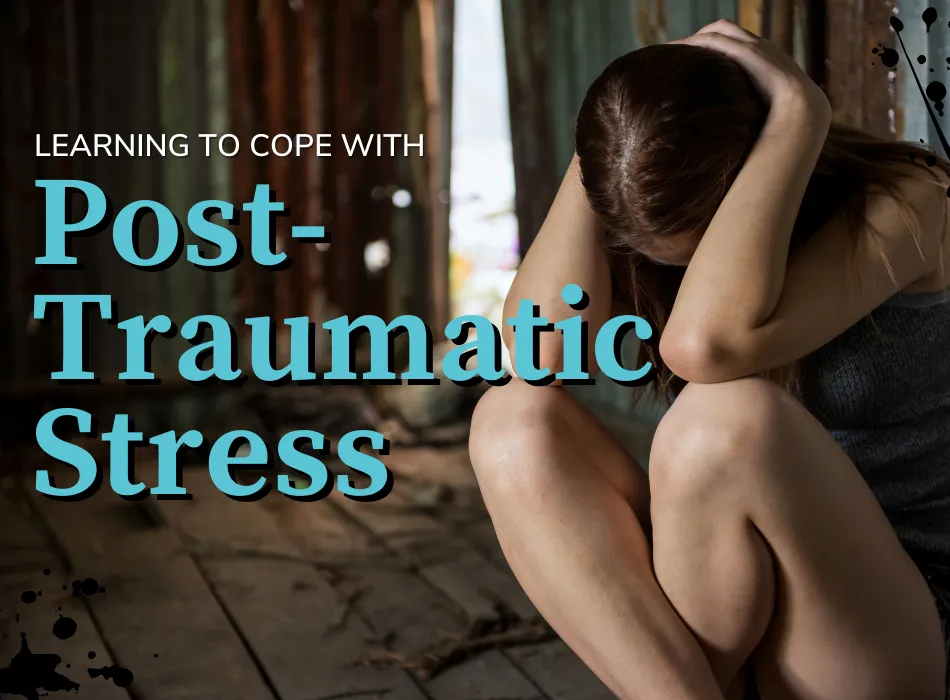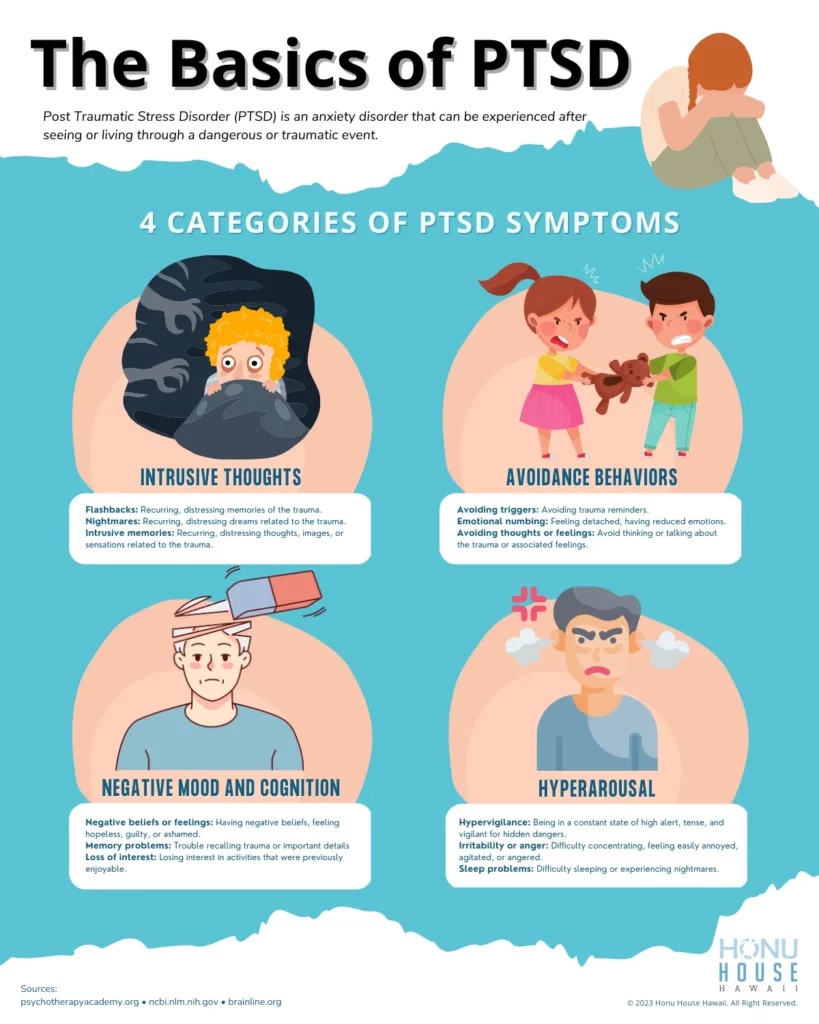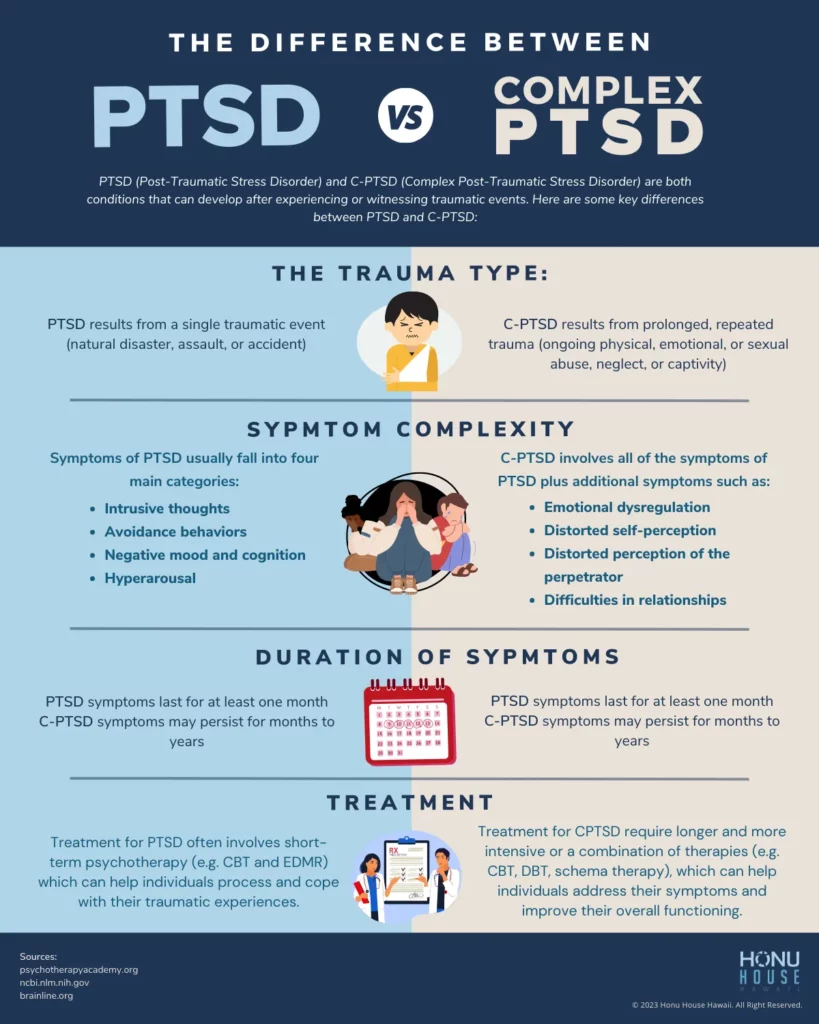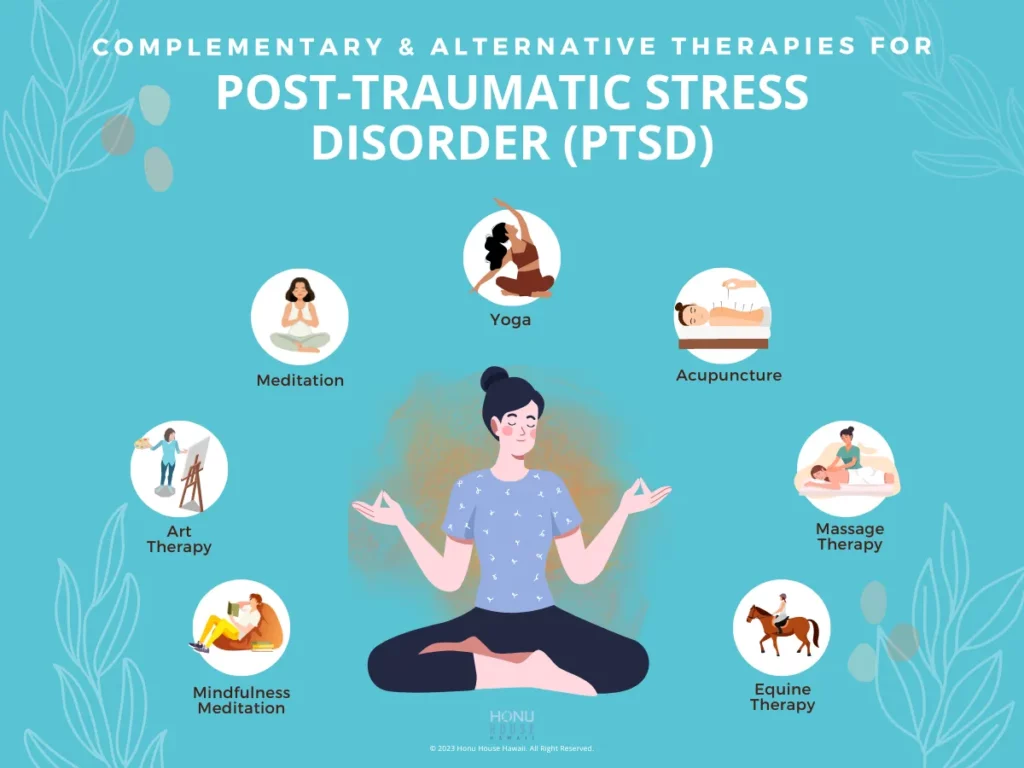
Learning to Cope with Post-Traumatic Stress
-
By John Burke
-
April 13, 2023
May is Mental Health Awareness Month, a time to raise awareness about mental health conditions and seek help when needed.
One mental health condition affecting millions worldwide is Post-Traumatic Stress Disorder (PTSD). PTSD is a mental health disorder that can develop after a traumatic event or a series of traumatic events. It affects people of all ages, genders, and backgrounds and can significantly impact a person’s life if left untreated. This blog post will discuss coping with post-traumatic stress and the treatments available to help manage the symptoms.
Understanding PTSD and its Symptoms

PTSD is a mental health condition that can develop after a person experiences or witnesses a traumatic event. It can be an event such as war, natural disaster, sexual assault, or physical violence.
The Diagnostic and Statistical Manual of Mental Disorders, Fifth Edition (DSM-5), lists the criteria for diagnosing PTSD. These include exposure to a traumatic event, re-experiencing, avoiding and arousal symptoms. diagnosing PTSD, providing exposure to a traumatic event, reliving signs, avoidance and arousal symptoms.
Some common symptoms of PTSD include flashbacks, nightmares, intrusive thoughts, and feelings of intense fear or sadness. People with PTSD may also avoid places, people, or things that remind them of the traumatic event. They can experience difficulty sleeping or concentrating and feel easily startled or irritable.
PTSD can affect a person’s daily life and relationships and cause significant distress and impairment if left untreated. Therefore, it’s essential to seek help from a mental health professional if you are experiencing symptoms of PTSD.
Risk Factors and Causes of PTSD
Several risk factors increase the likelihood of developing PTSD. These include repeated trauma, childhood trauma or abuse, sexual assault or physical violence, and a family history of mental illness.
Research suggests that PTSD may be caused by developing new neural pathways in response to trauma. These new neural pathways can cause changes in brain function and lead to the development of PTSD.
Some traumatic events that can cause PTSD include natural disasters, military combat, car accidents, and violent crimes. Traumatic events like being a prisoner of war may also increase PTSD risk.
Guilt or shame is associated with a traumatic event and childhood trauma. Neglect and emotional, physical, or sexual abuse are PTSD triggers.
Complex Post-Traumatic Disorder

Complex PTSD is a type of PTSD that can develop after prolonged exposure to traumatic events or repeated trauma. It is often associated with childhood abuse, neglect, or exposure to domestic violence. People with Complex PTSD may experience additional symptoms, such as emotional dysregulation, relationship difficulty, and a negative self-concept.
Complex PTSD may result from multiple traumas over time, unlike PTSD. It can also be more challenging to treat than PTSD. The underlying trauma is often deeply ingrained and requires specialized treatment.
Treatments for PTSD
Effective treatments are available to manage PTSD symptoms. These evidence-based treatments include Cognitive Behavioral Therapy (CBT), Eye Movement Desensitization and Reprocessing (EMDR), and medication.
CBT is a form of therapy that focuses on helping people identify and modify negative thought patterns and behaviors. It has proven effective in treating anxiety, depression, and PTSD.
EMDR therapy uses eye movements or bilateral stimulation to process traumatic memories and relieve symptoms.
Medication and therapy can help manage PTSD symptoms. Mental health professionals may prescribe antidepressants, anti-anxiety medication, or other types of medication to help alleviate symptoms.
However, medication alone is unlikely to provide long-term relief. It is crucial to work with a mental health professional to determine the best course of treatment for each individual. Overall, with the proper treatment and support, it is possible to manage PTSD symptoms and lead a fulfilling life.
PTSD and Treatment with Medications
Treating PTSD with medication is another option for managing symptoms. Antidepressants are a commonly used type of medication for treating PTSD.
One type of antidepressant that has shown to be effective is selective serotonin reuptake inhibitors (SSRIs). SSRIs increase the amount of serotonin in the brain. Serotonin is a chemical that affects mood and can help alleviate symptoms of depression and anxiety. These medications also help improve sleep disturbances common in people with PTSD.
Other antidepressants that can treat PTSD include tricyclic antidepressants and monoamine oxidase inhibitors. These medications can be effective in managing PTSD symptoms and are commonly prescribed. However, these medications have potential side effects such as weight gain, dizziness, and sexual dysfunction.
To find the right antidepressant for you, talk to a mental health professional about the pros and cons.
Post Traumatic Stress Disorder and Holistic Therapies

PTSD treatment goes beyond medication and therapy. Complementary and alternative therapies, like yoga, meditation, and acupuncture, have gained popularity. Recently, these therapies have shown promising results for those struggling with PTSD.
Yoga is a mind-body practice that combines physical postures, breathing exercises, and meditation. Yoga has been shown to reduce PTSD symptoms by reducing anxiety, improving sleep, and promoting relaxation and well-being. Practicing yoga can also help individuals develop greater self-awareness and improve their ability to regulate their emotions.
Meditation is another alternative therapy that is effective in managing symptoms of PTSD. Meditation involves focusing the mind on a particular object or thought to achieve a state of calm and relaxation.
Mindfulness meditation helps PTSD sufferers stay present and observe their thoughts and feelings without judgment. As a result, mindfulness meditation can increase feelings of control and reduce symptoms like anxiety, depression, and hypervigilance.
Acupuncture is a traditional Chinese medicine practice that involves inserting thin needles into specific points on the body. Acupuncture reduces PTSD symptoms by relaxing and reducing anxiety and depression. It may also help improve sleep quality, often disrupted in those with PTSD.
Massage, art, and equine-assisted therapies help manage PTSD symptoms. Massage therapy uses touch to manipulate muscles and soft tissues, promoting relaxation and reducing stress.
Art therapy uses creative expressions, like painting or drawing, to explore emotions and improve self-awareness.
Equine-assisted treatment involves working with horses. This treatment has been shown to help individuals with PTSD develop a greater sense of trust and communication skills.
Complementary and alternative therapies can supplement traditional treatments like therapy and medication. Thus, a mental health professional should help you choose and use medicines and treatments safely and effectively.
10 Minute Daily and Your PTSD
Alternative therapies, especially with the more traditional variants, help PTSD patients manage their symptoms.
Practicing alternative therapies at home can provide a sense of control and empowerment to those struggling with PTSD. One example of a daily routine that can be done in just ten minutes includes deep breathing exercises, meditation, and journaling.
Deep breathing exercises can help reduce anxiety and tension, while meditation can promote relaxation and mindfulness. Journaling is a valuable tool for expressing emotions and can help people with PTSD process their experiences.
Other alternative therapies that can be practiced at home include yoga, acupuncture, and massage therapy. These therapies can help promote relaxation and reduce physical tension, both of which can be beneficial in managing symptoms of PTSD.
Alternative therapies can help manage PTSD symptoms but should be discussed with a mental health professional to find the best fit.
Mental health professionals can help integrate these therapies into a comprehensive treatment plan and support recovery.
Honu House Hawaii: A Place for Treatment
For those struggling with PTSD, finding the proper treatment can be a challenge. That’s why it’s essential to consider specialized facilities that can provide individualized care to those in need. One such facility is Honu House Hawaii, located in Honolulu, Hawaii.
Honu House Hawaii treats military veterans and first responders with PTSD, trauma, and addiction. The facility provides safe, supportive Cognitive Behavioral Therapy, Eye Movement Desensitization and Reprocessing, and Prolonged Exposure Therapy.
Honu House Hawaii’s licenced psychologists, social workers, and addiction specialists have extensive experience working with veterans and first responders. The programme includes medication management, individual and group therapy, and holistic therapies like yoga, meditation, and art therapy.
Honu House Hawaii’s serene location on the island of Oahu provides a peaceful and healing environment for those seeking treatment. The facility’s staff is committed to helping clients achieve long-term recovery and improve their quality of life.
Understand and Treat PTSD at Honu House
PTSD is a challenging and often debilitating condition that can significantly impact a person’s life if left untreated. Cognitive Behavioral Therapy, Eye Movement Desensitization and Reprocessing, and medication are all evidence-based treatments for symptoms.
Honu House Hawaii provides a comprehensive treatment programme that addresses unique needs. There are treatments for military veterans and first responders seeking specialised care for Post Traumatic Stress Disorder.
The facility’s mental health professionals offer evidence-based therapies and holistic treatments to promote long-term recovery.
It’s important to raise awareness of mental health issues like PTSD during Mental Health Awareness Month in May.
If you or someone you know is struggling with PTSD, there is hope. With the proper treatment and support, learning to cope with post-traumatic stress and improve your quality of life is possible.
Frequently Asked Questions
What is PTSD?
PTSD is a mental health condition that can develop after a person experiences or witnesses a traumatic event. This can include events such as war, natural disasters, sexual assault, or physical violence. PTSD affects people of all ages, genders, and backgrounds and can significantly impact a person’s life if left untreated.
What are the symptoms of PTSD?
The symptoms of PTSD can include flashbacks, nightmares, intrusive thoughts, and feelings of intense fear or sadness. People with PTSD may also avoid places, people, or things that remind them of the traumatic event. They can experience difficulty sleeping or concentrating, and feel easily startled or irritable.
What are the risk factors and causes of PTSD?
Several risk factors increase the likelihood of developing PTSD. These include repeated trauma, childhood trauma or abuse, sexual assault or physical violence, and a family history of mental illness. Traumatic events like being a prisoner of war may also increase PTSD risk.
What is Complex PTSD?
Complex PTSD is a type of PTSD that can develop after prolonged exposure to traumatic events or repeated trauma. It is often associated with childhood abuse, neglect, or exposure to domestic violence. People with Complex PTSD may experience additional symptoms, such as emotional dysregulation, relationship difficulty, and a negative self-concept.
What are the treatments for PTSD?
Effective treatments are available to manage PTSD symptoms. These evidence-based treatments include Cognitive Behavioral Therapy (CBT), Eye Movement Desensitization and Reprocessing (EMDR), and medication. Complementary and alternative therapies, like yoga, meditation, and acupuncture, have also shown promising results for those struggling with PTSD.
Can PTSD be treated with medication?
Treating PTSD with medication is another option for managing symptoms. Antidepressants are a commonly used type of medication for treating PTSD. One type of antidepressant that has shown to be effective is selective serotonin reuptake inhibitors (SSRIs). Other antidepressants that can treat PTSD include tricyclic antidepressants and monoamine oxidase inhibitors. These medications can be effective in managing PTSD symptoms and are commonly prescribed. However, these medications have potential side effects such as weight gain, dizziness, and sexual dysfunction. It is important to talk to a mental health professional about the pros and cons of medication and find the right antidepressant for you.
What should I do if I think I have PTSD?
If you are experiencing symptoms of PTSD, it is essential to seek help from a mental health professional. They can provide the necessary treatment and support to manage your symptoms and lead a fulfilling life. Don’t hesitate to reach out for help.
